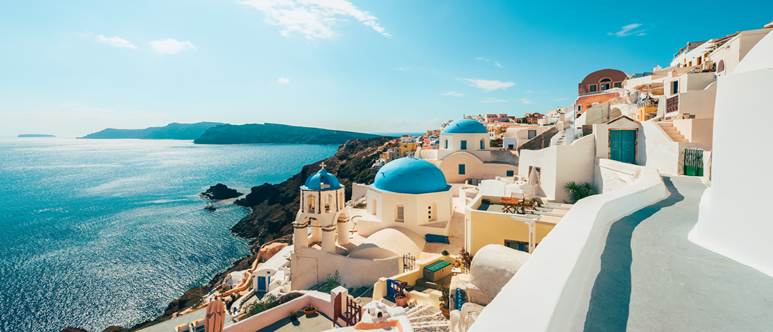TUI Group presented its new sustainability programme this weekend. All of the group’s activities will contribute to the emission reduction targets: the airlines of TUI Airline, the TUI hotels and the cruise ships of the group. These reduction targets by 2030 have been approved by the Science-Based Targets initiative (SBTi) – a collaboration with, among others, the United Nations Global Compact and the WWF – a guarantee of seriousness for the companies involved.

TUI Group presented its sustainable development programme this weekend with a clear commitment to achieve the established objectives by 2030. The mission is clear: significantly reduce TUI’s environmental footprint and maximise the positive socio-economic impact of tourism in holiday destinations. The sustainable development programme is based on 3 main pillars: people, planet, progress.
POPULATION
The objective is to maximise the positive socio-economic impact of tourism on the populations of holiday destinations. To do this, TUI Group will collect 10 million euros per year by 2024 for its foundation, the TUI Care Foundation. This money will be used to improve the education of young people, to preserve the natural environment of the destinations and to help local communities to thrive. You can find more information about the TUI Care Foundation here.
PLANET
The main objective of TUI’s sustainability programme is the reduction of the group’s emissions, compared to the reference year 2019. TUI is committed to achieving this objective by 2030 for all of its activities: TUI airlines, hotels and cruise ships. In addition, TUI is committed to achieving climate neutrality (Net-Zero emissions) for the entire company and supply chain by 2050 at the latest. The entire sustainability programme has been reviewed and approved by the independent Science-Based Target Initiative (SBTi), which monitors compliance of targets with the latest climate science data.
TUI Airline is responsible for around 80% of the group’s emissions. CO2 emissions per kilometre per passenger have already been reduced by 18% in recent years. These will be further reduced by 24% by 2030. TUI has always invested in the most modern aircraft fleet and will continue to do so in the future. Beyond this investment, the objective will be achieved by improving the efficiency of flight operations (optimisation of flight routes for example) and increasing the use of sustainable aviation fuels (SAF). In addition, TUI advocates for taxes that reflect the efforts of airlines: higher taxes for older fleets and lower for more modern fleets or those that use sustainable fuels.
For TUI hotels, the group is committed to reducing emissions by at least 46.2%. But the objective is even more ambitious and aims for hotel neutrality by 2030. To achieve this, TUI is increasing the use of renewable energies and betting on more efficient operations in order to reduce the use of resources in its hotels. . TUI wants to become a pioneer in the sector in terms of climate and thus further increase its lead in this area by applying the principles of the circular economy in all areas of activity.
TUI Group is committed to eliminating unnecessary plastic packaging and objects by 2025. In 2019, 257 million single-use plastic objects had already been eliminated from hotels, cruise ships, planes and offices. On the other hand, a target of reducing food waste by 25% in all areas of activity has been set by 2030.
By 2030 at the latest, TUI will offer climate-neutral cruises and the group’s cruise emissions will be reduced by more than a quarter (27.5%). No other cruise line in the world currently commits to such an absolute reduction target and no other cruise line has received SBTi approval.
PROGRESS
The objective is to accelerate the transformation towards sustainable tourism. To do this, TUI has implemented a sustainability certification strategy for hotels by an independent label. Since 2015, 54 million vacations have been spent at certified sustainable hotels.
Change is also afoot in destination excursions: TUI was the first company in the industry to apply global sustainability standards to its portfolio of experiences. TUI Musement is also certified according to the criteria of the Global Sustainable Council. This certification process helps local suppliers improve the sustainability of their offering, helping to transform the entire tourism sector.
A great example of an initiative is the “Co-Lab Rodes”, launched in 2022 by TUI and the TUI Care Foundation in collaboration with the Greek government and the government of the South Aegean. The island of Rhodes, which attracts many travellers, is becoming a global model of sustainable transformation: 27 local projects have been adopted and are currently under development.
TUI’s sustainability programme responds to the group’s ambition to not only shape its own transformation, but also to be a pioneer in the tourism sector and a trendsetter in all holiday destinations. One thing is clear: 2030 is only an intermediate step, the objective being to achieve neutrality (Net-Zero emissions) well before 2050.



